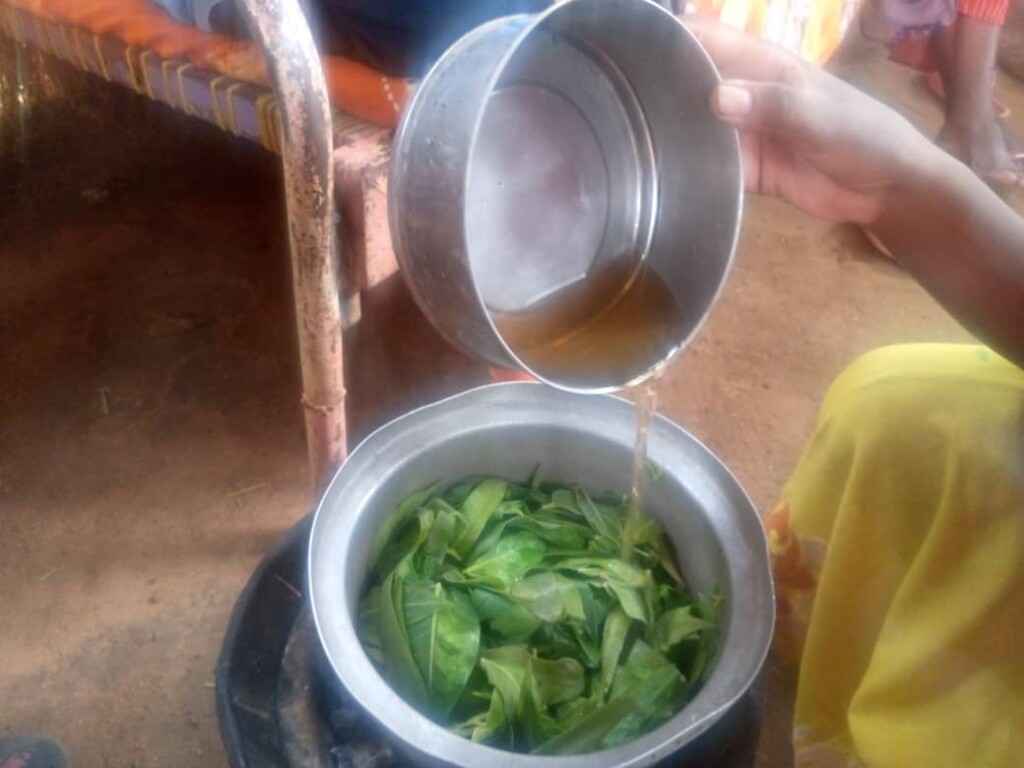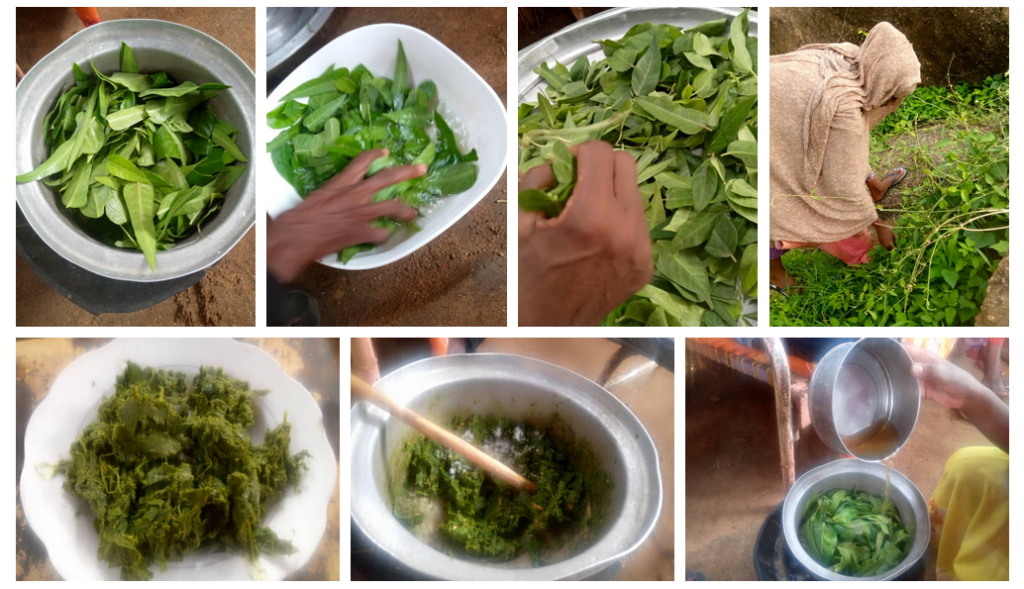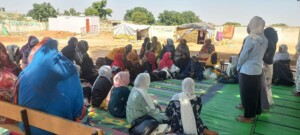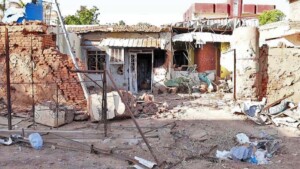Sudan’s Dilling faces famine as war isolates South Kordofan

A woman cooks wild leaves in South Kordofan, Sudan - Photo Sudan Tribune
July 25, 2024 (DILLING) – Residents of Dilling city in Sudan’s South Kordofan state are facing severe food shortages and rising prices. Due to a lack of humanitarian aid, some are resorting to eating tree leaves and animal feed.
Safiya Gibran, a Dilling resident, told Sudan Tribune that the price of a sack of corn has quadrupled in the past three months, reaching 300,000 Sudanese pounds ($510). Other staples like flour and rice now cost 5,000 pounds per kilogram.
“Most residents, especially those displaced in shelters, have resorted to eating tree leaves and leftover animal feed to survive,” Gibran said. “All roads leading to the city are closed. We need rescue and rapid intervention. People are dying of hunger here.”
The city’s isolation is due to a combination of factors, including conflict between the Sudanese army, the Rapid Support Forces, and the People’s Movement-North group. The fighting has closed vital supply routes, cutting off the flow of food and other essential goods.
Dilling, the second-largest city in South Kordofan, has seen an influx of thousands of displaced people fleeing fighting in nearby areas. These individuals are now living in shelters, lacking basic necessities and relying on limited aid efforts.
Maryam Arzaq, a displaced person in Dilling, described her daily struggle to feed her children. “I wake up every day after dawn prayer to stand in a long queue inside a shelter to get a small amount of lentils, which is barely enough for one person,” she told Sudan Tribune.
The lack of cash liquidity further exacerbates the situation, forcing residents to rely on banking apps for transactions due to the deterioration of communication and internet services.
Residents are calling for urgent humanitarian intervention to prevent further suffering and loss of life in the besieged city.
Eating leather and leaves amid siege
As a result of the siege and the severe food shortages, some Dilling residents resort to desperate measures like consuming leather to survive. Zainab Askar, a local resident, told Sudan Tribune that closed roads have cut off humanitarian aid and commercial convoys, leaving the city without essential goods.
“There is a shortage of goods as the roads have been closed and no humanitarian aid or commercial convoys are allowed to enter,” Askar told Sudan Tribune. She added that many citizens have resorted to eating leather and relying on herbs foraged from the mountains.

“Many citizens have resorted to eating ‘leather’ to survive,” Askar said, adding that residents also rely on herbs like “Arak Al-Nabi” and “Al-Khol” for sustenance.
A merchant in Dilling’s market confirmed that goods have become unaffordable due to skyrocketing prices. Merchants risk their lives to deliver goods, often using livestock like donkeys, camels, and cows to navigate treacherous roads, he told Sudan Tribune.
The lack of employment opportunities has exacerbated the crisis. Osman, a resident who hasn’t received his salary in over six months, has resorted to begging in the market to feed his seven children. He called on the warring parties to open roads and allow relief to reach the city.
A report by the Humanitarian Aid Commission in Dilling estimated that there are about 90,884 displaced people in the city, including those who arrived after April 15, 2023, and those displaced since 2011. The city’s total population is about 189,371.
The report highlighted the urgent need for food staples like corn, flour, oil, onions, and lentils, as well as health, water, and nutrition interventions. It also called for shelter materials and psychological support.
#StandWithSudan #WorldPressFreedomDay
Find Sudan Media Forum on Facebook and X (formenrly Twitter)











 and then
and then